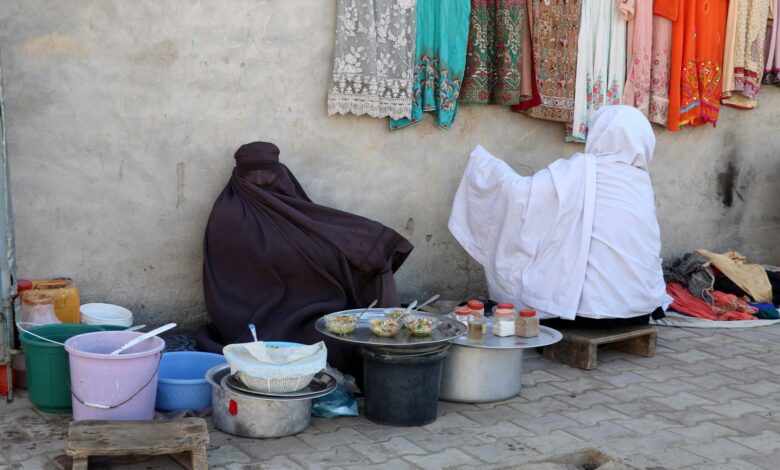
Kabul, Jun 28 (EFE).- Without a husband or grown-up sons to go out and earn in a highly orthodox and patriarchal Islamist society, widows in Afghanistan are left in a lurch, condemned to poverty on account of increasing restrictions on women by the Taliban.
Fatima is the oldest of four widows in a 100 square meter house in the northern state of Kandahar, a few meters from the office of the provincial governor. The other three are her 25- and 30-year-old daughters-in-law – each with four children – and her niece, who has one child.
Decades of conflict and violence left at least 176,000 Afghans, including civilians, dead between 2001 and 2021, according to the Costs of War Project data. This in turn left tens of thousands of families without means of sustenance.
A UN report estimated in 2001, just before the US invasion, that Afghanistan already had about two million widows in the country, although more recent data from the deposed Afghan Ministry of Social Affairs indicated that there were about 500,000 in 2016.
In Afghanistan, although a widower can rebuild his life, for women the options are limited.
The most traditional of these options is to marry the husband’s brother to maintain assets and responsibilities within the family, although an increasing number of women choose not to remarry to focus on their children.
However, especially in rural areas, widows are at the mercy of the deceased husband’s family, which decides whether to support or abandon her.
Abandoned widows are often left with no other option but to beg on the streets to survive.
Fatima says she lost her husband during a NATO bombing in Kandahar in 2001, while two of her sons were killed in separate incidents, leaving her two daughters-in-law under her care.
Meanwhile, the husband of Fatima’s niece – the fourth widow – went missing while traveling from the southern province of Helmand to Kandahar.
The strict societal norms imposed by the Taliban completely removes widows from public spaces.
In addition to the stigma of not having a husband, these women face a wide range of prohibitions, including a ban on secondary and university education, work in certain trades or travel without being accompanied by a male family member.
“Previously we worked in the city, we had a good income but when the Taliban came, they told us to not go out of our houses. Now we should send our children to work”. said Fatima, fanning herself with a piece of cardboard in the 49-degree sweltering heat.
This family of widows and their nine children need 4,000 Afghanis a month (about $46.5) in rent, an amount that is becoming increasingly difficult to pay.
Before the Taliban came to power in August 2021, the four women used to sell eggs in different parts of the city, from which they earned enough to buy sufficient food for all members of the household and pay the rent.
“Under the previous government, we had good income and people also paid double for eggs, but with this government people cannot pay or buy many,” she said.
The children have become the main source of income, selling eggs at 100 Afghanis a day ($1.16) while their mothers sometimes receive orders for laundry, said Fatima.
The money they earn is just enough to buy bread, leaving them dependent on their neighbors, who sometimes bring them leftovers of food with meat and vegetables to supplement their diet.
This extreme poverty has robbed the minors of their childhood and made them forego their dreams.
“They say they want to study and become doctors, but I tell them they can’t do these things, we’re poor,” Fatima said
.


